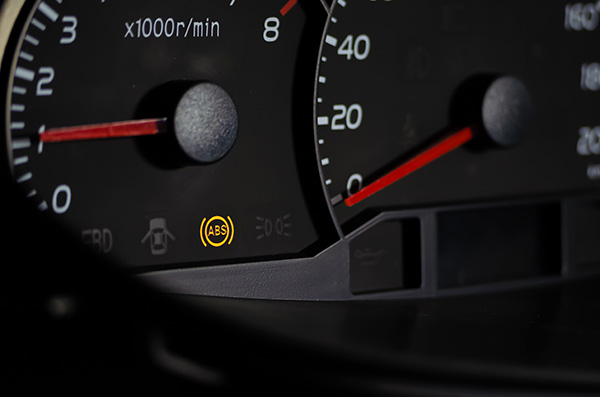
If you suddenly notice that your ABS (Anti-lock Braking System) and traction control lights have lit up on your dashboard, it can be unsettling, especially when you're not sure of the cause. These warning lights are crucial safety features in modern vehicles, so it's important to address the issue promptly when they come on. But what exactly triggers these lights, and what should you do about it?
Understanding ABS and Traction Control Systems
Before we get into the causes, let's take a moment to understand what ABS and traction control systems do. Both are designed to improve vehicle safety, particularly under conditions where traction might be compromised, such as wet, icy, or uneven roads.
ABS (Anti-lock Braking System) prevents the wheels from locking up during hard braking. This system allows the driver to maintain steering control during an emergency stop, which can be crucial for avoiding a collision. When ABS is functioning correctly, you might feel a pulsation in the brake pedal under hard braking, which is a normal part of its operation.
Traction Control works in tandem with ABS, using the brakes and sometimes the engine to prevent wheel spin during acceleration. It's particularly useful in slippery conditions, helping you to maintain control and prevent the car from sliding or skidding.
Common Causes of ABS and Traction Control Lights Coming On
1. Faulty Wheel Speed Sensors
One of the most common reasons for the ABS and traction control lights to come on is a problem with the wheel speed sensors. These sensors are responsible for monitoring the speed of each wheel and relaying this information to the car's computer. If one of these sensors fails or gets dirty, it can send incorrect data, triggering the warning lights.
Wheel speed sensors can fail due to dirt, debris, or damage from road conditions. If you've been driving in particularly rough or muddy conditions, this might be the culprit.
2. Issues with the ABS Module
The ABS module is the brain behind the ABS system, processing the data from the wheel speed sensors and controlling the brake pressure. If there's an issue with the module, such as a bad connection, water damage, or internal failure, it can cause the ABS light to come on.
This issue is more common in older vehicles where the ABS module might be subject to wear and tear over time. However, it can also occur in newer cars if there's a manufacturing defect or if the module has been exposed to moisture.
3. Low Brake Fluid Levels
Brake fluid is essential for both the ABS and traction control systems to function properly. If the brake fluid level is too low, it can trigger the warning lights on your dashboard. Low brake fluid can be caused by a leak in the brake lines, worn brake pads, or simply not topping up the fluid as needed.
Low brake fluid not only affects the ABS and traction control systems but can also compromise your overall braking performance, making it a critical issue to address immediately.
4. Faulty Steering Angle Sensor
The steering angle sensor measures the angle of your steering wheel and relays this information to the traction control system. This helps the system determine if the car is turning as intended or if there's a loss of traction.
If the steering angle sensor fails or gets out of calibration, it can cause the traction control light to come on. This issue often arises after a wheel alignment or if the steering wheel has been adjusted or replaced.
5. Worn or Damaged Brake Components
Sometimes, the issue causing your ABS and traction control lights to come on is related to the physical components of the braking system. Worn brake pads, damaged rotors, or even a malfunctioning brake caliper can all trigger these warning lights.
If your brake components are in poor condition, it can not only affect the ABS system but also your general braking performance, making it crucial to have these parts inspected and replaced as needed.
What to Do When the ABS and Traction Control Lights Come On?
When these warning lights illuminate, it's essential not to ignore them. While your vehicle may still operate, the safety systems are compromised, which can increase the risk of accidents, especially in adverse driving conditions.
Here's what you should do:
Check Your Brake Fluid Levels
If your brake fluid is low, topping it up might resolve the issue. However, if you notice a significant drop in fluid levels, there could be a leak in the system, which requires immediate attention.
Inspect for Obvious Issues
Check for visible damage to the brake components, wheel speed sensors, and wiring. Dirt, debris, or corrosion can sometimes be cleaned or repaired without extensive work.
Schedule a Diagnostic Check
The best course of action is to take your vehicle to a qualified repair shop that can perform a diagnostic check. This will pinpoint the exact cause of the warning lights and ensure the appropriate repairs are made.
Preventive Maintenance
Regular maintenance is key to keeping your ABS and traction control systems in top working condition. This includes routine brake inspections, keeping your brake fluid topped up, and ensuring that all sensors and electronic components are functioning correctly.
Preventive maintenance not only helps avoid unexpected repairs but also ensures that your vehicle's safety systems are always ready to perform when you need them most.
Don't let those warning lights cause you stress—visit Just Automotive today! Our expert technicians can diagnose and fix ABS and traction control issues, ensuring your safety on the road. Schedule an appointment now!